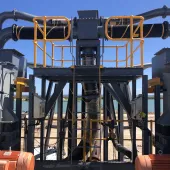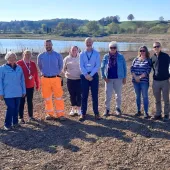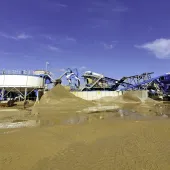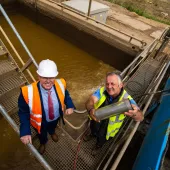Update on New Authorisations – Quarry Dewatering
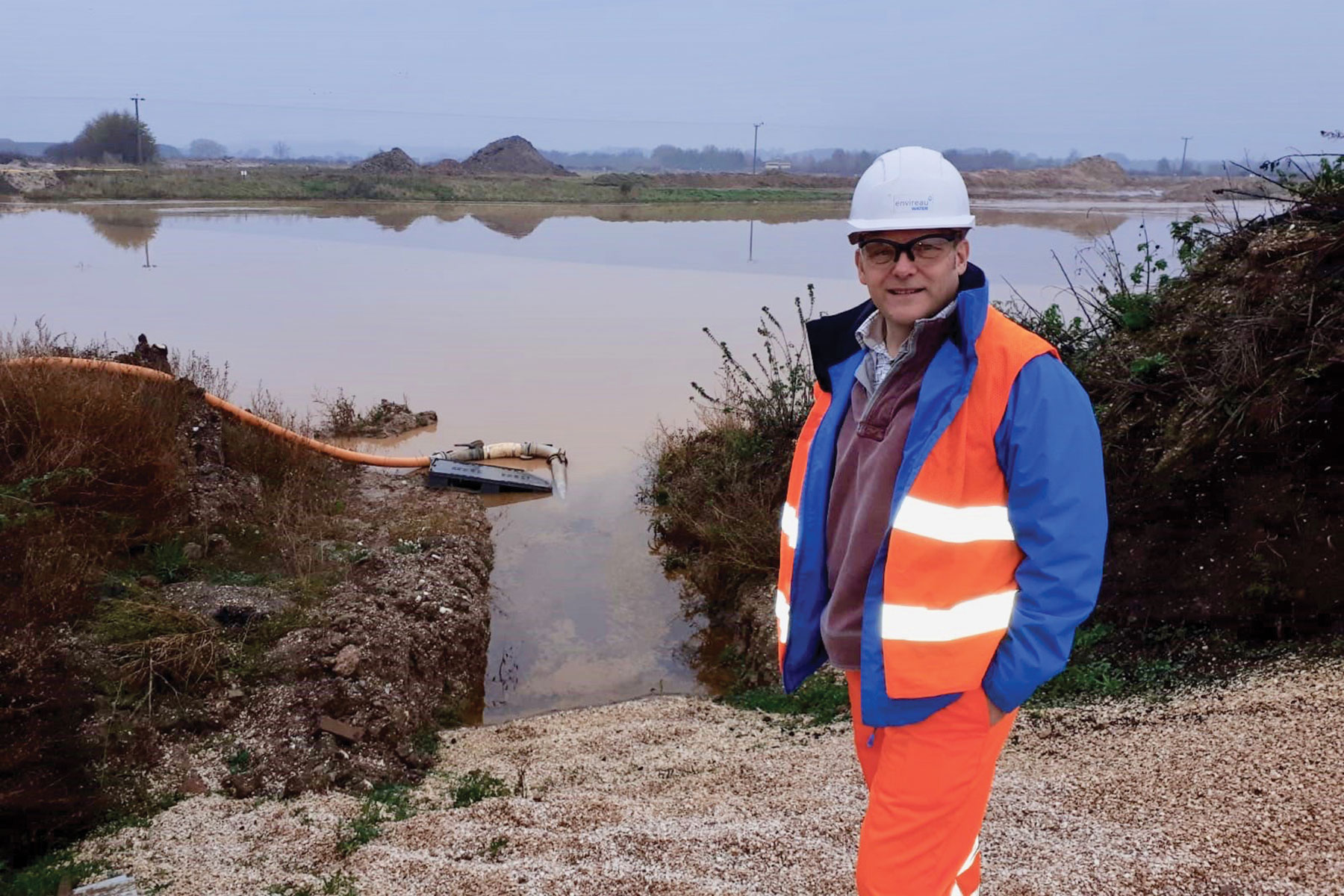
First published in the January 2019 issue of Quarry Management
Where are we now? A year into the process, James Dodds, director and chairperson of Envireau Water, re-examines the situation
It is a year since I wrote an article on the ‘New’ Authorisations process1, the process which was introduced on 31 October 2017 and implemented on 1 January 2018. The process affects quarries in England and Wales that are dewatering and removes the exemption from abstraction licensing that the industry historically benefitted from.
The history behind the changes was discussed in my article last year, and for those that want or need to know, the key regulatory documents are:
- Government response to consultation on changes to water abstraction licensing exemptions in England and Wales: New Authorisations
- The Water Act 2003 (Commencement No. 12) Order 2017
- The Water Abstraction (Transitional Provisions) Regulations 2017.
We are now a year into the process and, as of November 2018, only a small percentage of the expected number of applications had been submitted. This is a very worrying situation for three important reasons:
- If applications are not accepted as valid by the Environment Agency (EA)/Natural Resources Wales (NRW) before 31 December 2019, it is likely that dewatering would have to cease on 1 January until an appropriate licence is obtained. The process for gaining a licence takes at least five months and the ‘light-touch, risk-based approach’ currently enjoyed will be lost. The timing is therefore business critical.
- The EA and NRW have limited resources in terms of staff and staff time. As time goes on the ‘application bubble’ is squeezed into fewer and fewer months, the EA/NRW workload increases more and more, and there will be less and less time for help and support to be provided to applicants. The opportunity for free advice will be lost and in the case of unusual or difficult situations the applicants will be left to their own devices.
- If you have started dewatering, or changed your dewatering system since 1 January 2018, you are dewatering illegally and are committing a criminal offence. You have now had a year to sort this out and it might be expected that EA/NRW leniency is wearing thin.
It is, therefore, critical that applications are prepared and submitted as soon as possible.
As a reminder, there are two types of abstraction licences generally relevant to quarries: a full licence; and a transfer licence. A full licence is required if you are abstracting more than 20m3/day and are using the water, for example, for dust suppression, wheel washing, domestic use, product washing etc. A transfer licence is needed where water is moved from one place to another, without an intervening use. In most cases dewatering would require a transfer licence.
In order to obtain the necessary licence(s) there are two process routes; the Transitional Arrangements; and the ‘Day Job’ or ‘New Water’ route. The Transitional Arrangements can be used where a quarry has been dewatering historically (between 2011 and 2017). The ‘Day Job’ process is the standard abstraction licence application process and is used for operations that started after 1 January 2018 or where there have been changes to the operation after that date. It must be stressed that dewatering should not now start or be modified if an appropriate abstraction is not in place.
With respect to Transitional Arrangements, 31 December 2019 is not the critical date. It is imperative that EA/NRW have validated the application by this date. Therefore, to allow time for review and, if necessary, discussion, applications should be submitted by July 2019. Better still, and to get in front of the ‘application bubble’, it is strongly recommended that you get applications in before Easter. The task is not as daunting as you might think.
Whilst not many applications have been submitted, lessons have been learned from those that have and also through discussing issues that have been raised, and questions that have been asked, with EA/NRW.
The key part of the Transitional Arrangements application is evidence of dewatering and the quantities of water that have been abstracted historically. A range of evidence is acceptable and guidance has been provided by both the EA2 and NRW3. What is important is that the evidence provides a transparent, reasoned evidence base for the quantities of water presented in the application. Examples of evidence are:
- Meter readings
- Physical dimensions of a transfer channel (no control)
- Physical dimensions of a transfer pipe (appropriately sized and positioned)
- Flow rates for abstraction equipment
- Pump of known capacity and pumping hours
- Outputs from QA systems or abstraction programming systems.
It is not necessary to go into great detail. Monthly estimates based on pump flow rates and hours pumped or frequency of pumping are acceptable. General principals on campaign operations and seasonal variability are fine. A guess, with no justification, is not.
The elevation of the dewatered water level is also important, as it may be used as the basis of the abstraction licence in the future. This is easily obtained from a site survey.
If your site is located close to a water-dependent environmental feature, the EA/NRW will need to consider possible impacts on the feature. If your site has undergone an assessment as part of a planning application, ROMP review or similar in the last five years, it is highly likely that water management and dewatering will have been considered and that assessment will be adequate for the abstraction licence application. As reports or assessments get older, it is possible they will no longer be appropriate, and if more than 10 years old it is likely that new assessments may be required. If in doubt discuss this with EA/NRW or take independent advice.
Once the Transitional Arrangements application has been validated, the EA/NRW will wait until January 2020 to start the determination process. This is to make sure that all applications have been received and are considered together in any particular catchment area. The EA/NRW have three years to determine all the applications, including those from industries other than quarrying. During the determination process there may be further discussions with applicants with respect to the need for further information. Dewatering within the description/details submitted as part of the Transitional Arrangements application can continue until the application is determined, after which the conditions on the licence will have to be followed.
As discussed above, the Transitional Arrangements do not cover new dewatering operations or increases in dewatering abstraction rates/volumes. In these situations, it is important that a licence is obtained before the operations start or volumes increase. Where increases in dewatering rates and volumes are required before the end of 2019, the best approach is to submit a ‘Day Job’ application at the same time as the Transitional Arrangements application and make sure that both are considered together. This will help the EA/NRW to understand the situation and it is possible that the Transitional Arrangements application will be determined early, to keep the licensing as simple as possible.
There is an important exemption from the licensing requirement. That is, a site where the level of water in the excavation depends wholly or mainly on rainfall. This situation could occur, for example, in tight rock quarries and clay pits, or in areas of particularly high rainfall, such as the South West and Wales. If you think that this applies to you, you should consider taking independent expert advice.
As you prepare your application(s) both the EA and NRW are happy to discuss questions and queries with you, subject to their available resources. The key contacts are: Sam Doling (sam.doling@environment-agency.gov.uk) and Kate Johnson (kate.johnson1@environment-agency.gov.uk) at the EA; and Mary Beckett (Mary.Beckett@cyfoethnaturiolcymru.gov.uk) and Liz Cole (Liz.Cole@cyfoethnaturiolcymru.gov.uk) at NRW.
Key messages coming from both organizations include:
- Evidence of abstraction is the poorest/most time-consuming part of applications.
- Most of the applications received have been of a high standard, and those that have not been have been relatively easily resolved.
- It is important to include the necessary information that will allow the applications to be determined in 2020 and beyond.
- With complex sites or where there is a long history, the application should be discussed with EA/NRW in advance.
- NRW should have published details for a process to simultaneously determine Transitional and ‘Day Job’ applications in December 2018.
- Provide a clear, understandable picture showing the groundwater conceptual model and linkages to environmental features and rivers (if appropriate).
- Clear, simple, site water-management flow diagrams are welcomed and help EA/NRW understand the types of licences required.
Both the EA and NRW are looking at ways the processes can be simplified and are taking on board the experience gained from the early applications. This experience is fed into updates to guidance published on the .gov.uk and NRW websites. In addition, the Institute of Quarrying has run two IQ Academy webinars on dewatering licensing and the MPA continues to disseminate information to members and discuss the processes with both the EA and NRW. It is important, therefore, that before submitting applications, you review the information available and, if necessary, obtain professional independent advice. But above all ACT NOW! For more information visit: www.envireauwater.co.uk
References
- DODDS, J.: ‘New Authorisations – Quarry Dewatering’, Quarry Management, 2018, vol. 45, no.2, pp15-16
- www.gov.uk/government/uploads/system/uploads/attachment_data/file/682412/New_authorisations_evidence_guide.pdf
- cdn.naturalresources.wales/media/685975/external-guidance-note-evidence-for-new-authorisations-applicationsv2.docx
- Subscribe to Quarry Management, the monthly journal for the mineral products industry, to read articles before they appear on Agg-Net.com




